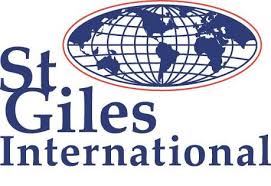
Cultural Competency in the Workplace
Course ID: 2508040101117ESH
Course Dates : 04/08/25 Course Duration : 5 Studying Day/s Course Location: London, UK
Language: Bilingual
Course Category: Professional and CPD Training Programs
Course Subcategories: Operations and Process Excellence
Course Certified By: ESHub CPD & LondonUni - Executive Management Training
* Professional Training and CPD Programs
Leading to:
Executive Diploma Certificate
Leading to:
Executive Mini Masters Certificate
Leading to
Executive Masters Certificate
Certification Will Be Issued From :
From London, United Kingdom
Course Fees: £5,120.30
Vat Not Included in the price. VAT may vary depending on the country where the course or workshop is held.
Click to Pay
Date has passed please contact us Sales@e-s-hub.com
Course Information
Introduction
In an increasingly interconnected global economy, organizations are becoming more diverse than ever before. This diversity brings a wealth of perspectives, ideas, and approaches that can drive innovation and enhance organizational performance. However, it also introduces challenges related to communication, collaboration, and inclusivity. Cultural competency—the ability to understand, communicate with, and effectively interact with people across cultures—has emerged as a critical skill for navigating this complexity. Rooted in frameworks such as Hofstede’s Cultural Dimensions Theory and Bennett’s Developmental Model of Intercultural Sensitivity, cultural competency equips individuals and organizations to bridge cultural divides and foster inclusive environments.
Despite its importance, many professionals struggle to apply cultural competency principles effectively. Misunderstandings arising from cultural differences often lead to workplace conflicts, reduced productivity, and even reputational damage. For instance, a multinational corporation faced backlash when its marketing campaign inadvertently used culturally insensitive imagery, resulting in public criticism and financial losses. Such incidents highlight the gaps in knowledge and practice that persist in many industries. This course addresses these gaps by providing participants with actionable strategies to navigate cultural differences confidently and respectfully.
The benefits of mastering cultural competency extend beyond individual growth. Organizations that prioritize cultural competency report higher employee engagement, improved customer satisfaction, and stronger market positioning. Research by McKinsey & Company underscores this point, revealing that companies with diverse leadership teams outperform their peers financially. By fostering an inclusive culture, businesses not only attract top talent but also cultivate loyalty among employees and clients alike. This course empowers participants to contribute meaningfully to these outcomes, positioning them as catalysts for positive change within their organizations.
Cultural competency is not merely about awareness; it involves developing practical skills to address real-world scenarios. Consider the case of a healthcare provider who successfully implemented cultural competency training for its staff. The initiative led to improved patient outcomes, as clinicians became better equipped to understand and respect patients’ cultural preferences regarding treatment. Similarly, educators trained in cultural competency have been able to create more equitable learning environments for students from diverse backgrounds. These examples illustrate how the principles taught in this course translate into tangible results across various sectors.
To ensure relevance and depth, this course integrates established theories and contemporary trends. Participants will explore concepts such as unconscious bias, microaggressions, and intersectionality while examining how these phenomena manifest in professional settings. They will also analyze emerging trends, such as the role of remote work in reshaping cross-cultural interactions and the impact of generational diversity on workplace dynamics. Through interactive discussions and case studies, attendees will gain insights into both timeless principles and cutting-edge practices.
Ultimately, this course is designed to empower participants to thrive in multicultural environments. Whether negotiating international partnerships, leading diverse teams, or serving global customers, professionals equipped with cultural competency skills are better positioned to succeed. By investing in this training, individuals and organizations can build bridges across cultures, unlocking new opportunities for growth and collaboration.
Objectives
By attending this course, participants will be able to:
Analyze the impact of cultural differences on workplace communication and decision-making processes.
Evaluate personal biases and assumptions using tools like the Implicit Association Test (IAT).
Design inclusive policies and practices that align with organizational goals and compliance requirements.
Implement strategies to resolve cross-cultural conflicts and foster mutual understanding.
Apply frameworks such as Hofstede’s Cultural Dimensions Theory to assess cultural contexts in professional settings.
Develop action plans to promote diversity, equity, and inclusion within their teams or departments.
Synthesize insights from real-world case studies to inform culturally sensitive leadership approaches.
Who Should Attend?
This course is ideal for:
HR managers seeking to enhance diversity and inclusion initiatives within their organizations.
Team leaders responsible for managing multicultural teams and improving collaboration.
Consultants advising clients on global expansion or cross-cultural projects.
Educators and trainers aiming to create inclusive learning environments.
Professionals in customer-facing roles who interact with diverse clientele.
Training Method
• Pre-assessment
• Live group instruction
• Use of real-world examples, case studies and exercises
• Interactive participation and discussion
• Power point presentation, LCD and flip chart
• Group activities and tests
• Each participant receives a 7” Tablet containing a copy of the presentation, slides and handouts
• Post-assessment
Program Support
This program is supported by:
* Interactive discussions
* Role-play
* Case studies and highlight the techniques available to the participants.
Daily Agenda
Daily Schedule (Monday to Friday)
- 09:00 AM – 10:30 AM Technical Session 1
- 10:30 AM – 12:00 PM Technical Session 2
- 12:00 PM – 01:00 PM Technical Session 3
- 01:00 PM – 02:00 PM Lunch Break (If Applicable)
- Participants are expected to engage in guided self-study, reading, or personal reflection on the day’s content. This contributes toward the CPD accreditation and deepens conceptual understanding.
- 02:00 PM – 04:00 PM Self-Study & Reflection
Please Note:
- All training sessions are conducted from Monday to Friday, following the standard working week observed in the United Kingdom and European Union. Saturday and Sunday are official weekends and are not counted as part of the course duration.
- Coffee and refreshments are available on a floating basis throughout the morning. Participants may help themselves at their convenience to ensure an uninterrupted learning experience Provided if applicable and subject to course delivery arrangements.
- Lunch Provided if applicable and subject to course delivery arrangements.
Course Outlines
Foundations of Cultural Competency
Understanding the concept of cultural competency and its relevance in modern workplaces.
Exploring key theories: Hofstede’s Cultural Dimensions and Bennett’s DMIS.
Identifying common barriers to effective cross-cultural communication.
Recognizing the business case for cultural competency through data-driven insights.
Day 2:
Self-Awareness and Bias Management
Conducting self-assessments to uncover unconscious biases.
Understanding the role of microaggressions in perpetuating exclusion.
Strategies for mitigating bias in hiring, promotions, and daily interactions.
Practicing empathy-building techniques to enhance interpersonal relationships.
Day 3:
Communication Across Cultures
Mastering verbal and non-verbal communication styles across cultures.
Navigating language barriers and leveraging translation tools effectively.
Addressing cultural nuances in email etiquette and virtual meetings.
Role-playing exercises to simulate cross-cultural negotiation scenarios.
Day 4:
Conflict Resolution and Inclusivity
Identifying sources of cross-cultural conflict and their root causes.
Applying mediation techniques to resolve disputes amicably.
Developing inclusive meeting structures to ensure equal participation.
Creating safe spaces for open dialogue about cultural differences.
Day 5:
Policy Design and Implementation
Drafting diversity and inclusion policies aligned with organizational values.
Ensuring compliance with legal and regulatory standards related to cultural competency.
Measuring the effectiveness of cultural competency initiatives through metrics.
Presenting final action plans for implementing learned strategies in participants’ workplaces.



















































